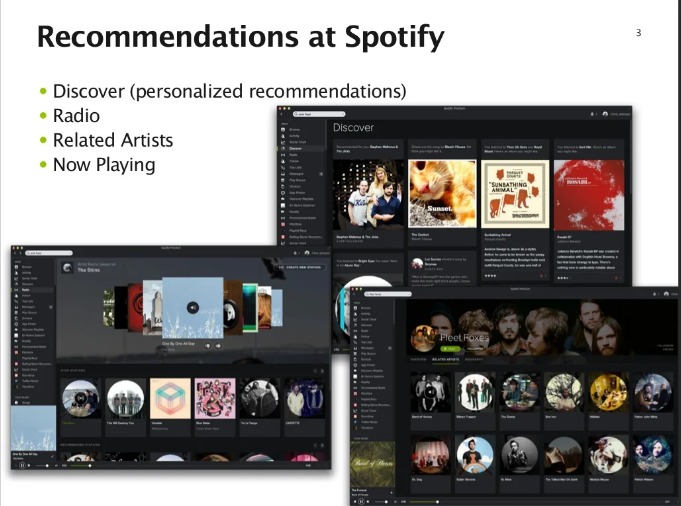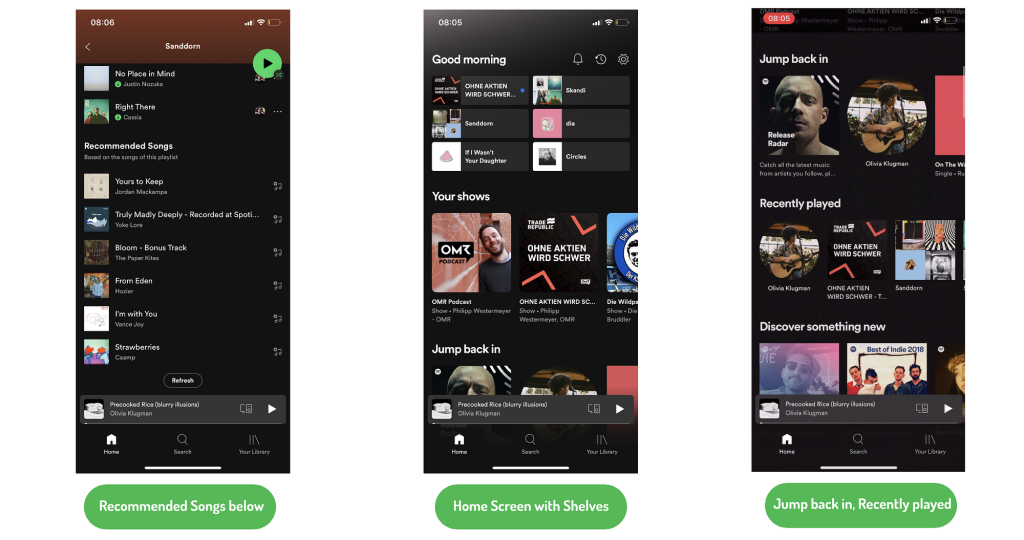Spotify’s New Music Recommendation Algorithm: A Game Changer
Introduction
Spotify’s new music recommendation algorithm is a breakthrough. It personalizes the music experience like never before. The algorithm analyzes individual listening habits. It considers what users play, skip, and save. The recommendations get better over time. As users interact with the app, the algorithm learns and adapts. This makes music discovery more engaging. It suggests songs you will likely enjoy. It tailors playlists just for you. You can also download the official Spotify APP here.
How the Algorithm Works: Understanding Its Functionality
Spotify’s algorithm works by using machine learning. It analyzes large amounts of data quickly. It looks at your listening history to find patterns. The algorithm also tracks what you skip and save. It recognizes your preferences over time. It adapts to changes in your music taste. The more you use the app, the better the recommendations get. It combines your personal data with global trends. This helps Spotify predict what you want to hear next. You read our article on spotify wrapped 2024 here.
Personalized Playlists: Dynamic and Evolving Music Selections
Spotify creates personalized playlists based on your activity. These playlists evolve as your taste changes. They update frequently with new songs. You get a fresh mix every week. The algorithm introduces new tracks alongside familiar ones. It keeps things exciting. It blends old favorites with new music discoveries. This makes listening to music feel new every time. The playlists are dynamic, always changing to reflect your tastes. Comparison of Spotify mod and Youtube Music here.

Spotify’s Machine Learning: Improving Accuracy Over Time
Machine learning is at the heart of Spotify’s algorithm. The more you use the app, the smarter it becomes. It continuously learns from your behavior. Each song you listen to adds data. Over time, this makes the recommendations more accurate. Spotify also uses collaborative filtering. It sees how people with similar tastes interact with music. The algorithm learns from this shared behavior. This helps it suggest songs you might like. This makes them more vulnerable to malicious code. Comparison of saavn and spotify mod here.

Leveraging Collaborative Filtering for Better Recommendations
Collaborative filtering is a key technique used by Spotify. It identifies patterns in user behavior. The algorithm finds users with similar tastes. It looks at what songs these users enjoy. It then suggests those same songs to you. This method helps Spotify recommend tracks that you might not have found otherwise. It enhances music discovery. It exposes you to new artists and songs that align with your taste. Read our article on how Spotify Mod apk is better than Deezer here.

Content-Based Filtering: What It Brings to the Table
Content-based filtering is another important part of the algorithm. This technique focuses on the attributes of songs. It considers genre, tempo, and key. It looks at the lyrics and mood of the music. If you like a particular type of song, the algorithm finds similar ones. This method helps Spotify suggest songs with similar characteristics. It ensures the music fits your personal style and preferences. You can read on how safe our mod is here.

The Role of Popularity in Music Suggestions
Popularity also plays a role in Spotify’s recommendations. If a song is trending, the algorithm takes notice. It may suggest it if your preferences align with the song’s characteristics. Popularity doesn’t overshadow personalization. The algorithm still prioritizes your taste. However, it blends your preferences with what’s popular. This mix keeps the recommendations fresh and exciting.
Integrating User Feedback: A Continuous Feedback Loop
User feedback is essential to Spotify’s recommendation system. When you like, skip, or save songs, the algorithm takes note. This feedback helps refine the suggestions. It creates a continuous feedback loop. Every interaction you have with the app improves future recommendations. This makes the algorithm more intuitive over time. It adapts to your evolving tastes and preferences. You can take a look at the comparison of spotify apk and tidal here.
Spotify’s Playlist Features: Customized to Fit Your Mood

AI’s Role in Enhancing Music Discovery
Artificial intelligence (AI) plays a key role in music discovery. Spotify uses AI to analyze large data sets in real time. The algorithm can spot emerging trends and new artists. It helps bring fresh music to the forefront. AI ensures that you always discover something new. It predicts what you will enjoy based on your habits. This makes your music experience feel unique and personal. Download the Lite version here.
Playlist Curators: Blending Algorithms with Human Touch
While the algorithm drives recommendations, human curators still add value. Spotify’s curators help blend expert insights with AI-driven suggestions. They hand-pick songs that fit the theme or mood of a playlist. Curators balance the machine’s recommendations with a human touch. This ensures the playlists feel personal and engaging. Curators refine the algorithm’s suggestions, adding a layer of expertise to the music discovery process. Learn how to download songs here.
You can take a look at the comparison of spotify apk and Apple Music here
Discover Weekly and Release Radar: Personalized for You
Two of Spotify’s most popular features are “Discover Weekly” and “Release Radar.” These playlists are tailored specifically for you. “Discover Weekly” introduces you to new music each week. It’s updated every Monday, offering fresh recommendations based on your listening habits. “Release Radar” focuses on new releases from artists you follow. It gives you access to the latest music as soon as it’s available. Both playlists reflect Spotify’s ability to deliver personalized and up-to-date recommendations. Learn about Spotify Lossless audio here.
Combining User Behavior and Global Trends
Spotify’s algorithm doesn’t just look at your behavior. It also takes global trends into account. If a song is trending worldwide, and it aligns with your preferences, the algorithm may suggest it. This combination of personal data and global trends creates a diverse listening experience. It introduces you to popular songs while staying true to your tastes. It keeps the recommendations balanced and exciting. Learn about Spotify Gift cards here.


Spotify’s new algorithm uses AI and machine learning to personalize music recommendations based on user behavior, preferences, and global trends.
Playlists like “Discover Weekly” and “Release Radar” are tailored to your preferences, offering a mix of familiar tracks and new discoveries.
It tracks your listening habits, including songs you play, skip, like, or save, and adapts its suggestions over time.
Yes, the algorithm blends your personal taste with trending tracks that align with your listening habits.
Spotify’s AI analyzes data in real time to predict and suggest songs that match your mood and preferences.
